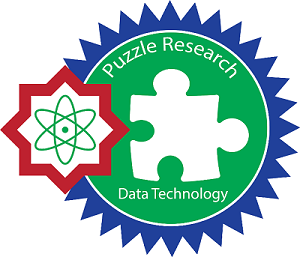ADDITIONAL MENU
Prediction of Student Academic Stress Levels Using the Decision Tree Algorithm and Particle Swarm Optimization
Abstract
Academic stress was recognized as a major challenge for university students because it negatively affected learning outcomes, mental health, and overall well-being. The purpose of this research was to develop and validate a predictive model of student academic stress levels and to evaluate whether optimization techniques improved the performance of a baseline classifier. Data were collected from 413 active students of Universitas Sapta Mandiri from the 2022 and 2023 cohorts using the Perception of Academic Stress (PAS) scale, which consisted of 18 indicators, together with demographic, academic, and psychosocial attributes. The Decision Tree (DT) algorithm was selected for its interpretability and transparency in multi-class classification. To improve generalization, its parameters were optimized using Particle Swarm Optimization (PSO) with 10 particles and 20 iterations. The baseline model achieved an accuracy of 93 percent, with the highest recall observed in the low-stress group. After optimization, the accuracy increased to 95 percent, and the recall for the high-stress group reached 0.96, indicating greater sensitivity to students at risk. These results confirmed that the research objectives were achieved, as the integration of DT with PSO enhanced both accuracy and class balance. The proposed model was consistent with the intended purpose of supporting early detection and timely academic and psychological interventions in higher education institutions.
Keywords
Academic Stress; Decision Tree; Machine Learning; Particle Swarm Optimization; Perception of Academic Stress
Full Text:
PDFReferences
N. M. Bayantari, S. H. Indonesiani, and P. I. B. Apsari, “Regulasi Diri dalam Belajar dan Hubungannya dengan Stres Akademik Pada Mahasiswa Tingkat Pertama Fakultas Kedokteran,” J. Imiah Pendidik. dan Pembelajaran, vol. 6, no. 3, pp. 609–618, Dec. 2022, doi: 10.23887/jipp.v6i3.51175.
M. F. S. Hadi and N. S. Tajudin, “Pengaruh Stress Terhadap Prestasi Belajar Mahasiswa Fakultas Kedokteran Universitas Tarumanagara Angkatan 2021,” J. Kesehat. Tambusai, vol. 4, no. 4, pp. 6694–6701, Dec. 2023, doi: 10.31004/jkt.v4i4.22712.
A. Anjani and Y. Yamasari, “Klasifikasi Tingkat Stres Mahasiswa Menggunakan Metode Berbasis Tree,” J. Informatics Comput. Sci., vol. 05, pp. 83–89, 2023.
H. Hendra, M. A. Azis, and S. Suhardjono, “Analisis Prediksi Kelulusan Mahasiswa Menggunakan Decission Tree Berbasis Particle Swarm Optimization,” J. Sisfokom (Sistem Inf. dan Komputer), vol. 9, no. 1, pp. 102–107, Mar. 2020, doi: 10.32736/sisfokom.v9i1.756.
P. B. Pankajavalli and G. S. Karthick, “Improved Stress Prediction Using Differential Boosting Particle Swarm Optimization-Based Support Vector Machine Classifier,” 2022, pp. 233–244. doi: 10.1007/978-981-16-2422-3_20.
P. Sharma and S. Kumar, “Retracted: Analyzing Customer Behavior on Online Products Using Decision Tree Machine Learning,” in 2022 International Conference on Advances in Computing, Communication and Materials (ICACCM), IEEE, Nov. 2022, pp. 1–8. doi: 10.1109/ICACCM56405.2022.10009622.
A. B. Raharjo, Y. A. Budiyono, and D. Purwitasari, “Analisis Laporan Gangguan Pelanggan Menggunakan Kombinasi Regresi Linear Berganda dan Klasifikasi Decision Tree Untuk Penentuan Komposisi Tim Yantek (Studi Kasus PLN UP3 Makassar Selatan),” Briliant J. Ris. dan Konseptual, vol. 7, no. 4, p. 1076, 2022, doi: 10.28926/briliant.v7i4.1037.
E. Salehi, “Applying Particle Swarm Optimization-Base Decision Tree Classifier for Mental Illnesses,” J. Inf. Eng. Appl., vol. 9, no. 7, pp. 23–30, 2019, doi: 10.7176/jiea/9-7-03.
V. R. P V, A. R. B, Harshitha, N. S, and S. S. Thingalaya, “Classification of Stress in Students using Machine Learning Algorithms,” in 2022 International Conference on Distributed Computing, VLSI, Electrical Circuits and Robotics ( DISCOVER), IEEE, Oct. 2022, pp. 229–233. doi: 10.1109/DISCOVER55800.2022.9974872.
C. Ding, Y. Zhang, and T. Ding, “A systematic hybrid machine learning approach for stress prediction,” PeerJ Comput. Sci., vol. 9, p. e1154, Feb. 2023, doi: 10.7717/peerj-cs.1154.
A. Kene and S. Thakare, “Mental Stress Level Prediction and Classification based on Machine Learning,” in 2021 Smart Technologies, Communication and Robotics (STCR), IEEE, Oct. 2021, pp. 1–7. doi: 10.1109/STCR51658.2021.9588803.
U. Ananthanagu and P. Agarwal, “Fostering Resilience: Machine Learning Models for Student Stress Prediction in Education,” in 2024 IEEE 9th International Conference for Convergence in Technology (I2CT), IEEE, Apr. 2024, pp. 1–5. doi: 10.1109/I2CT61223.2024.10543492.
R. Wirth and J. Hipp, “CRISP-DM: Towards a standard process model for data mining,” Proc. Fourth Int. Conf. Pract. Appl. Knowl. Discov. Data Min., no. 24959, pp. 29–39, 2000, [Online]. Available: https://www.researchgate.net/publication/239585378_CRISP-DM_Towards_a_standard_process_model_for_data_mining
P. D. Sugiyono, “Metode Penelitian Pendidikan (Kuantitatif, Kualitatif, Kombinasi, R&D dan Penelitian Pendidikan),” p. 18, 2019.
D. Bedewy and A. Gabriel, “Examining perceptions of academic stress and its sources among university students: The Perception of Academic Stress Scale,” Heal. Psychol. Open, vol. 2, no. 2, Jul. 2015, doi: 10.1177/2055102915596714.
Wes McKinney, Python for Data Analysis, 3rd Edition. Sebastopol, CA: O’Reilly Media, 2022.
F. Pedregosa et al., “Scikit-learn: Machine Learning in Python,” J. Mach. Learn. Res., vol. 12, pp. 2825–2830, Sep. 2011, [Online]. Available: https://ehp.niehs.nih.gov/doi/10.1289/EHP4713
K. R. Nadyandra and S. R. Nio, “Hubungan stress akademik dengan motivasi akademik pada mahasiswa yang sedang mengerjakan skripsi,” J. Pendidik. Tambusa, vol. 7, no. 2, pp. 3614–3622, 2023.
Y. Savira, E. Marhayuni, S. Widodo, and S. M. P. Lestrari, “Hubungan Manajemen Waktu Dengan Stres Akademik Pada Mahasiswa Kedokteran Universitas Malahayati Angkatan 2020,” J. Med. Malahayati, vol. 7, no. 2, pp. 627–634, 2023, doi: 10.33024/jmm.v7i2.10120.
S. Suhandiah, A. Ayuningtyas, and P. Sudarmaningtyas, “Tugas Akhir dan Faktor Stres Mahasiswa,” JAS-PT (Jurnal Anal. Sist. Pendidik. Tinggi Indones., vol. 5, no. 1, p. 65, 2021, doi: 10.36339/jaspt.v5i1.424.
J. B. E. Putry, A. T. Sasongko, and W. Hadikristanto, “Optimization of Decision Tree Using Particle Swarm Optimization for Credit Risk of KMG Bank DKI,” Indones. J. Mach. Learn. Comput. Sci., vol. 4, no. October, pp. 1403–1410, 2024.
D. D. S. Fatimah and E. Rahmawati, “Penggunaan Metode Decision Tree dalam Rancang Bangun Sistem Prediksi untuk Kelulusan Mahasiswa,” J. Algoritm., vol. 18, no. 2, pp. 553–561, 2022, doi: 10.33364/algoritma/v.18-2.932.
D. Wulandari, W. Roessali, and K. Budiraharjo, “Willingness to pay of the native chicken eggs in urban supermarket: evidence from Semarang, Indonesia,” J. Socioecon. Dev., vol. 3, no. 2, p. 79, Aug. 2020, doi: 10.31328/jsed.v3i2.1418.
V. Manurung and A. F. Rozi, “Analisis Perbandingan Algoritma K-Nearest Neighbor dan Decision Tree Pada Klasifikasi Tingkat Stress Individu,” TIN Terap. Inform. Nusant., vol. 5, no. 1, pp. 73–80, 2024, doi: 10.47065/tin.v5i1.5286.
Y. Yamasari et al., “Exploring the tree algorithms to generate the optimal detection system of students’ stress levels,” Indones. J. Electr. Eng. Comput. Sci., vol. 36, no. 1, pp. 548–558, 2024, doi: 10.11591/ijeecs.v36.i1.pp548-558.
DOI: http://dx.doi.org/10.24014/ijaidm.v8i3.38081
Refbacks
- There are currently no refbacks.
Office and Secretariat:
Big Data Research Centre
Puzzle Research Data Technology (Predatech)
Laboratory Building 1st Floor of Faculty of Science and Technology
UIN Sultan Syarif Kasim Riau
Jl. HR. Soebrantas KM. 18.5 No. 155 Pekanbaru Riau – 28293
Website: http://predatech.uin-suska.ac.id/ijaidm
Email: ijaidm@uin-suska.ac.id
e-Journal: http://ejournal.uin-suska.ac.id/index.php/ijaidm
Phone: 085275359942
Journal Indexing:
Google Scholar | ROAD | PKP Index | BASE | ESJI | General Impact Factor | Garuda | Moraref | One Search | Cite Factor | Crossref | WorldCat | Neliti | SINTA | Dimensions | ICI Index Copernicus
IJAIDM Stats










